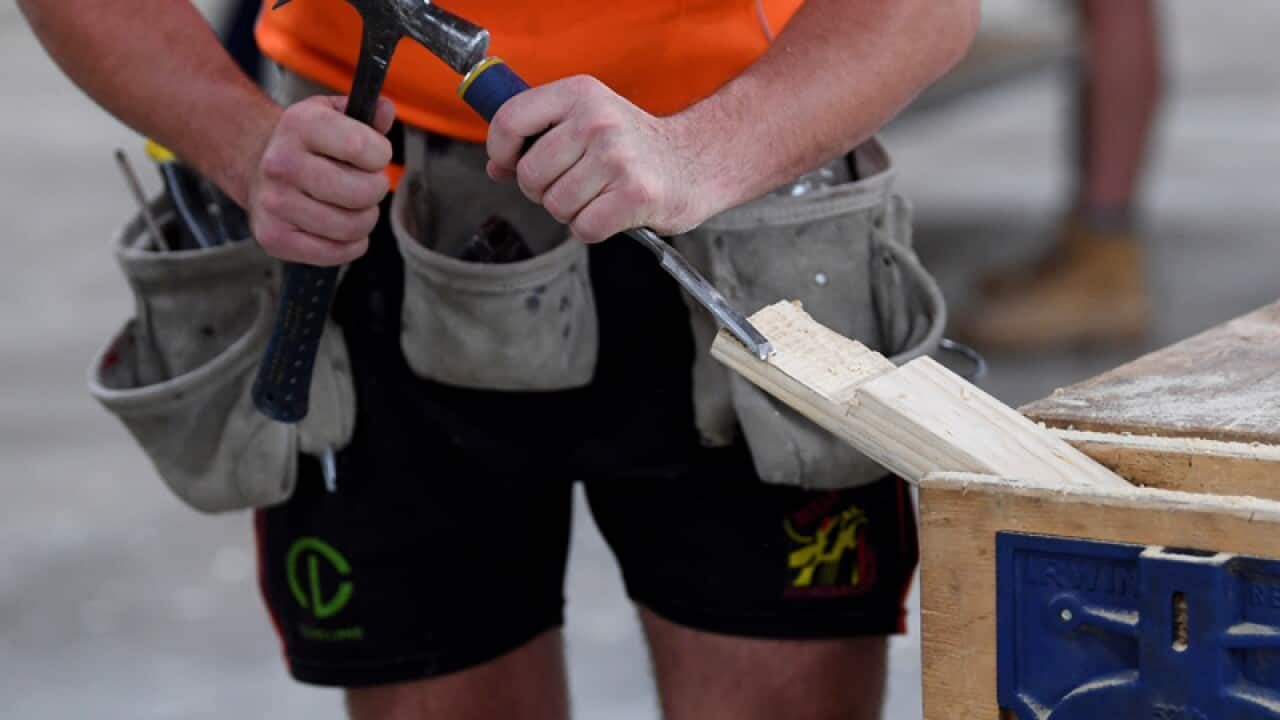One of Australia's top medical research heads says at least six institutes have had their job offers rejected by star scientists abroad following the federal government's recent visa overhaul.
Association of Australian Medical Research Institutes president, Tony Cunningham, has raised the alarm over last month’s changes to 457 visas, which saw hundreds of jobs cut from the list of eligible occupations.
Hundreds of other occupations are now on a restricted list which offers a visa for two years instead of four, and cuts off any pathway to permanent residency.
“In many cases we find that those people who come here are so valuable that we want to keep them," Mr Cunningham told SBS World News.
"An example of that would be Ian Frazer who came from Scotland and invented the papilloma virus vaccine.
“We run the risk of people leaving after two years and leaving us in the lurch in the middle of excellent funded research projects.”
American researcher Sarah Palmer, 57, has been working in Australia for five years to develop a cure for HIV.
She told SBS World News being restricted to a two year stay would have been enough to change her mind on whether to make the move.
"For my sort of research it would not be possible to come for two years and really to set up the full research plan," Dr Palmer said.
“It would definitely make me think twice about coming to Australia, that is true, in fact I probably would not have come."
Dr Palmer is one of the most renowned researchers in her field but is now nervous about what will happen when her 457 visa runs out in 2020.
She applied for the visa under the "life scientist" category, which has now been abolished as part of the recent changes.
“She's an example of the sort of person that we need to fill niches in Australia which cannot be filled by Australian scientists," Mr Cunningham said.
Watch: 457 visa changes
The Association of Australian Medical Research Institutes has met with officials from the Department of Immigration to talk about possible exemptions.
“The major problem for us is really about three or four occupations which are not on the medium-term list," Mr Cunningham said.
"They are life scientist and bio-statistician and a couple of others like biotechnologist.
“It can be done very easily, we just simply put these occupations back on the list or alternatively we do what some countries have done and have a special science visa.”
Immigration Minister Peter Dutton has hinted that exemptions may be possible.
“Where people are highly skilled, particularly if they're being employed in medical research institutes or tertiary hospitals or university research projects etc, in many cases they won't be affected by the changes that we've made,” Mr Dutton told reporters in Brisbane.
Some of the country’s largest companies have also raised their concerns about changes for the position of chief executive. It now also qualifies for a two year visa instead of four years.
Katie Lahey, executive chairperson of international recruiting company Korn Ferry, fears the two-year restriction will affect the ability of Australian companies to find the world's best talent for chief executive roles.
"I think there's a feeling that this really is going to limit the attractiveness of Australia as a working destination for very senior people," she told SBS World News.
“A lot of these very senior jobs will only become available for a two-year period and if you're going to uproot your life in the US, the UK, Hong Kong, Singapore to come to Australia for two years … for a very senior person they're not going to do that."
More than a third of chief executives employed at ASX100 listed companies were born overseas.
Gregory Robinson, managing partner at executive search and board advisory firm Blenheim Partners, said the government's visa changes were already forcing some companies to put their applicant searches on hold.
"We've already had phone calls from the ASX100 heads of HR, chief executives, c-suite executives who are currently engaged on executive searches in bringing talent in from offshore, having to put that on hold, having to stop the process, having to rethink the approach and in some cases actually turning away senior executives," he told SBS World News.
"It's actually quite an embarrassing situation."
Mr Dutton has said there would be regular reviews of the government's occupation lists, with the first one scheduled for July.
"We'll continue to work with employers because there is an important place for some people to come in on that visa stream but I want the default position to be Australian workers to fill those jobs," he said.











